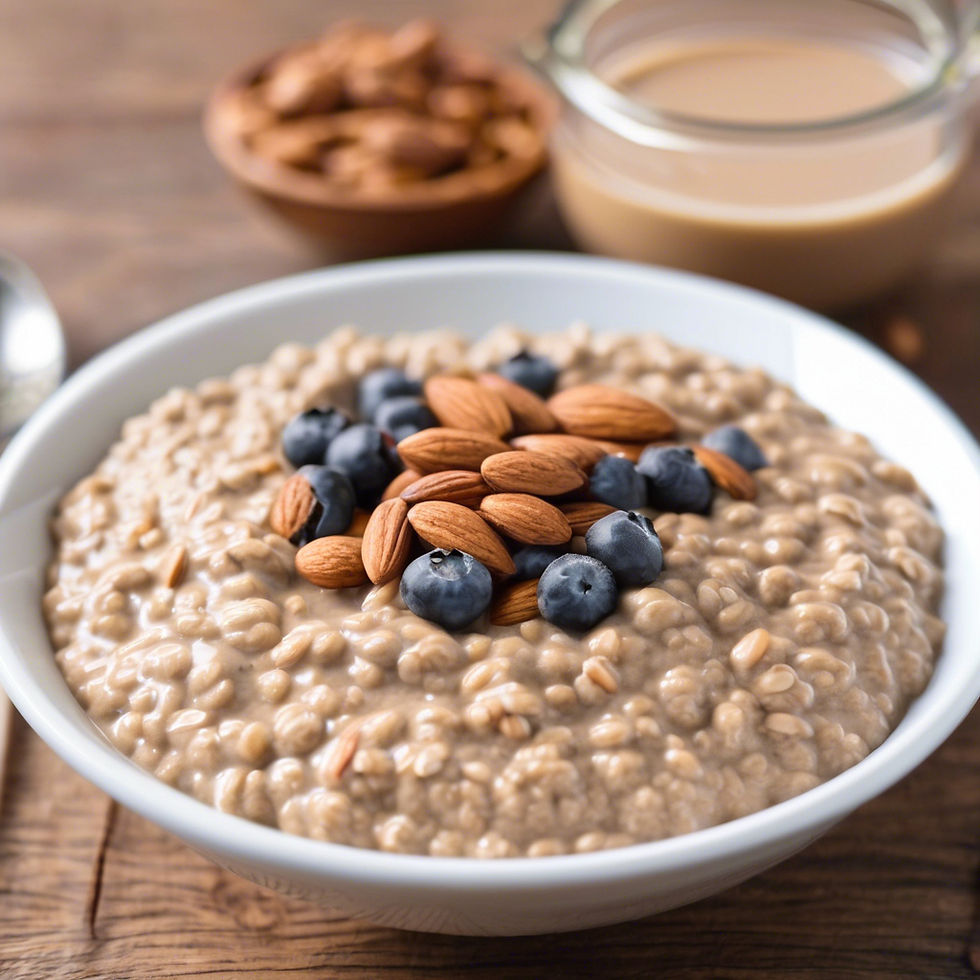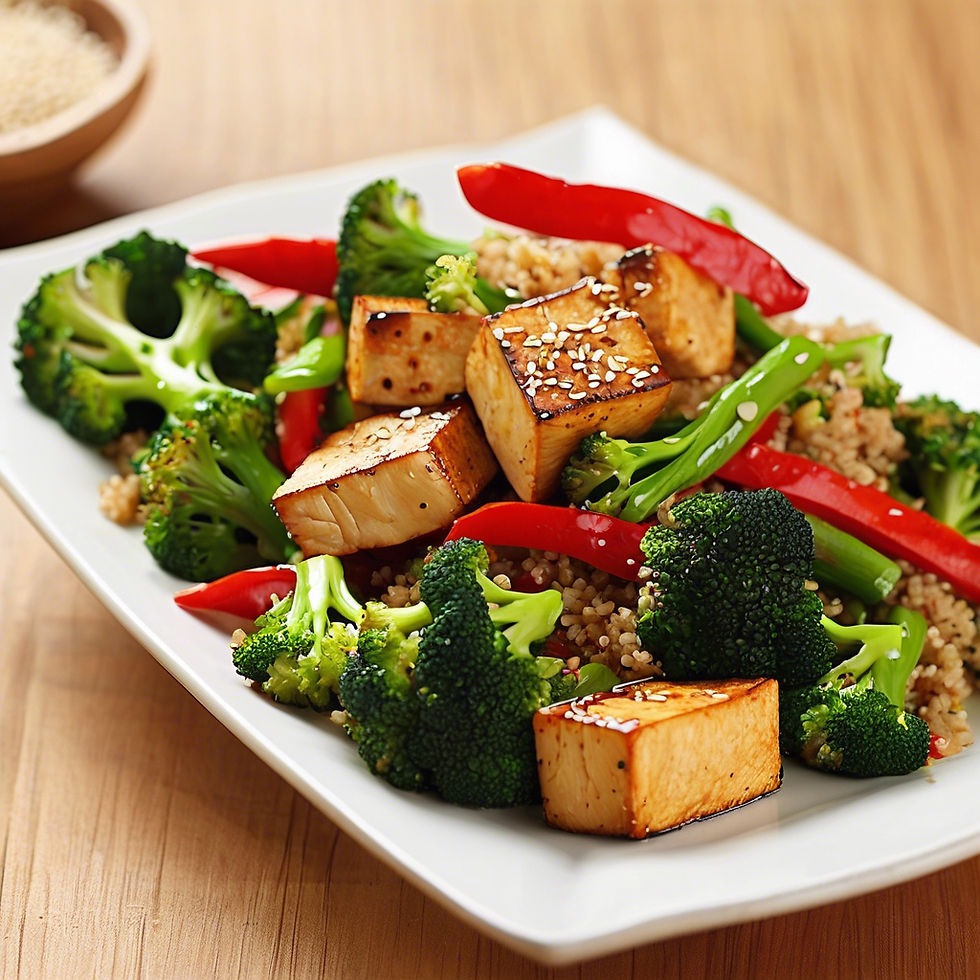The Power of Plants: How a Plant-Based Diet Supports Your Health—And How to Get Enough Protein
- medicalwellnessdoc
- Apr 18
- 3 min read
By Nisha Kuruvadi, DO, DipABOM, DipABLM
Triple Board-Certified in Internal Medicine, Obesity Medicine, & Lifestyle Medicine

“The best nutrition plan is the one you can stick to. You can eat anything, but this is what I would recommend: Do as much as you can to add plants into your diet.”
If you've ever thought about eating more plants but worried about protein, you're not alone. Many people are curious about plant-based diets but stop short because of common myths like:
👉 “Can I get enough protein?”
👉 “Will I feel full?”
👉 “Is this just salads all day?”
Let’s break it down together. A plant-based diet can absolutely support your energy, muscle strength, and overall health—and yes, you can get plenty of protein without animal products.
🌿 Why Go Plant-Based?

1. Better for Your Health
A growing body of research shows that plant-based diets are linked to:
Lower rates of heart disease
Reduced risk of type 2 diabetes
Improved cholesterol and blood pressure
Healthy gut microbiome and digestion
Better weight management
Even a partial shift—like eating plant-based most days—can make a big impact.
Did you know? Plant-based eaters tend to consume more fiber, antioxidants, and anti-inflammatory compounds—key players in long-term health and disease prevention.
2. Weight Loss and Sustainable Energy
Plant-based diets are naturally lower in calorie density but high in volume and nutrients. That means you can eat satisfying portions, feel full longer, and still meet your weight goals.
3. Kind to the Planet
Eating more plants reduces your carbon footprint, supports more sustainable food systems, and requires fewer environmental resources. It’s a win-win—for you and the Earth.
🥦 But What About Protein?
Let’s bust the myth right now: You can get all the protein you need from plants.
Here’s how:
✅ Top Plant-Based Protein Sources
These foods are rich in protein and fiber, keeping you full and fueled:

Food | Protein (per cooked cup) |
Lentils | 18g |
Chickpeas | 15g |
Black beans | 15g |
Tofu | 20g (per 1/2 block) |
Tempeh | 31g (per cup) |
Quinoa | 8g |
Edamame | 17g |
Hemp seeds | 10g (per 3 tbsp) |
Chia seeds | 5g (per 2 tbsp) |
Peanut butter | 8g (per 2 tbsp) |
Seitan | 21g (per 3 oz) |
Pair these with grains like brown rice or whole wheat bread for a complete amino acid profile.
🥗 Easy Ways to Add Protein to Every Meal
Here’s how to build balanced, protein-rich plant-based meals without overthinking it:
Breakfast: Oatmeal topped with chia seeds, almond butter, blueberries, and soy milk

Lunch: Lentil soup with whole grain toast

Dinner: Stir-fried tofu with broccoli, bell peppers, and quinoa

Snacks: Roasted chickpeas, protein smoothies, trail mix with nuts and seeds


💡 Smart Tips to Get Started
✅ Start simple: Swap meat for beans or lentils in your favorite recipes
✅ Keep flavor first: Use herbs, spices, sauces like tahini
✅ Batch cook: Prep lentils, grains, and veggies for easy meals
✅ Don’t aim for perfection: Just aim to add more plants where you can
📣 Real Talk: Do You Need Protein Powders?
Not necessarily. Whole foods can meet your needs. But if you're active or trying to build muscle, a clean plant-based protein powder (like pea, rice, or hemp) can help. Just check for minimal ingredients and no added sugars.
✅ Key Takeaways
You can get plenty of protein on a plant-based diet
Plant-based eating supports heart health, weight loss, and longevity
Start where you are and build meals around fiber, color, and protein
Focus on progress, not perfection
💬 Curious About Trying a Plant-Based Diet?
You don’t have to go 100% overnight. Even small shifts can lead to big changes. I help patients every day transition at their own pace, in ways that feel doable and sustainable. Want to learn more or get started with support?
📍 Visit MedicalWellnessDoc.com
📲 Follow along on Instagram and Facebook: @MedicalWellnessDoc
📌 Bonus: Sample High-Protein Plant-Based Meal Plan (1 Day)
Breakfast
Oatmeal with soy milk, chia seeds, berries, almond butter — 15 g protein

Lunch
Lentil & quinoa salad with spinach, cucumbers, tahini dressing — 20 g protein

Snack
Edamame and a banana — 17 g protein

Dinner
Tofu stir-fry with brown rice and veggies — 25 g protein

Total: ~ 77 g protein
Let Food Be Your Medicine 🌱
A plant-based diet doesn’t mean restriction—it means abundance, energy, and healing. Whether you’re plant-curious or plant-committed, every bite of fiber-rich, colorful food helps support your health.
📌 Stay Connected
Need help building a plan that works for you? I’d love to help you thrive with food as your foundation for wellness.
👩⚕️ Dr. Nisha Kuruvadi
Triple Board-Certified in Internal, Obesity, and Lifestyle Medicine
MedicalWellnessDoc.com | Instagram & Facebook: @MedicalWellnessDoc


Comments